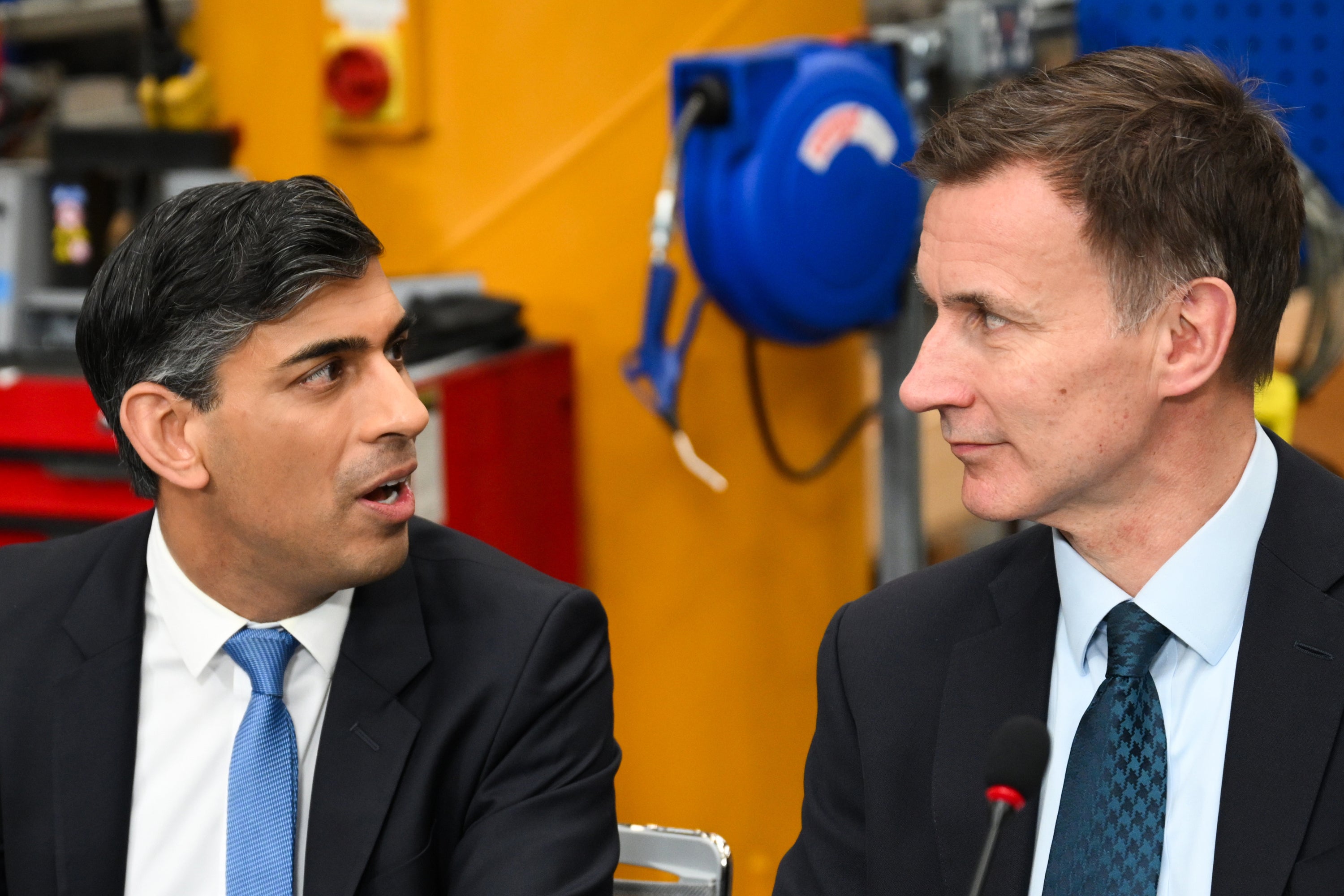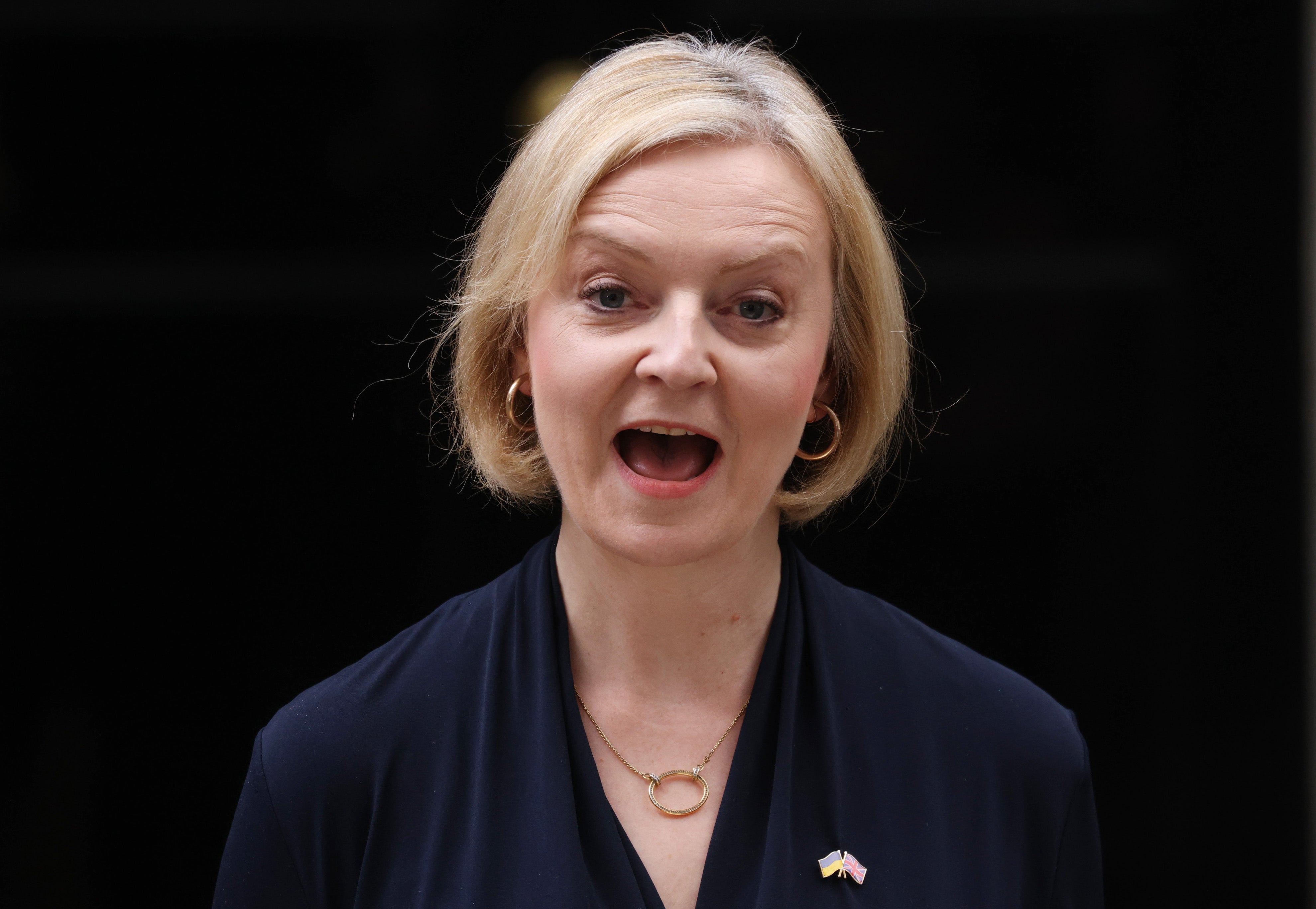What are the government’s fiscal rules and how will they affect the spring Budget?
The self-imposed rules constrain the government’s economic policies – so are they helpful or a hindrance? Zoe Grunewald looks at the pros and cons

On Wednesday the chancellor will present his final spring Budget before the next general election.
This will be one of the last opportunities for the government to set out its plans for the economy and increase the Conservatives standing in the opinion polls.
Jeremy Hunt has been keen to show that his party will be fiscally “prudent and responsible” and will not commit to any unfunded tax cuts.
But Mr Hunt is caught between a rock and a hard place. He is facing increasing pressure from those within his party to announce a series of tax cuts for voters, as well as the demands of creaking public services.
Both of these things he has to manage within the constraints of the government’s self-imposed fiscal rules.
What are fiscal rules?
Fiscal rules are restrictions on policy around government money, set by the government to constrain its own decisions on spending and taxes.
The first set of fiscal rules in the UK were created by the New Labour government in 1997. The rules applied for over a decade, but are now more regularly changed.
The current set of fiscal rules is the ninth set the UK has had and were created in November 2022.

What is the point?
The primary reason for fiscal rules is to protect against politicians spending more and taxing less, thus leaving a greater burden of debt for future generations.
Politicians also argue that fiscal rules provide a strong signal to markets that the government will stick to fiscal limits, helping maintain confidence and long-term financial security. They also argue it shows the electorate that they are responsible with public money.
Mr Hunt has argued that altering fiscal rules would lead people to interpret that as “Britain losing control of its finances”.
He told the BBC’s Laura Kuennsberg: “The reason we have them is to give confidence to the British people and to the world that we are a country that pays back our debt. And if we didn’t have them, people would worry that Britain was going to go on an endless borrowing binge.”
What are the government’s current fiscal rules?
1. Debt should be on course to fall as a share of national income in five years. This is the government’s primary fiscal rule.
It requires that debt (excluding the Bank of England) should drop between the fourth and fifth year in any given five-year period.
For the latest forecast, published in November 2023, this means that the debt-to-GDP ratio had to be forecast to be lower at the end of the 2028/29 financial year than at the end of 2027/28.
2. Public sector borrowing should not exceed 3 per cent of GDP in five years.
This rule means that the difference between government spending and government revenues should be forecast to be less than 3 per cent of GDP in the fifth year of the forecast period.
3. Some types of welfare spending must remain below a cap. This rule provides constraints on spending on social security payments for working-age people and children.
It effectively limits the extent to which policy changes can increase social security spending but can be adjusted if changes made to the economic forecast increase expected social security spending (for example, if wages are predicted to be lower or unemployment higher).
How do these rules work?
In the past, fiscal rules have often been altered or abandoned could they not be met.
Short term-economic events can change the viability of some rules and other unexpected political events can lead to them being abandoned.
For example, in March 2020, the UK government suspended its fiscal rules to accommodate the need for emergency spending on the back of the coronavirus outbreak.
But governments should be wary of abandoning fiscal rules for the sake of it. In September 2022, former prime minister Liz Truss and chancellor Kwasi Kwarteng caused market instability when they were perceived to have abandoned fiscal rules for unfunded tax cuts.

How might the current fiscal rules impact the upcoming Budget?
The Institute for Government has warned that the UK’s fiscal framework is “incentivising bad policy decisions shaped by short-termism and fictional spending plans” as governments try to force desired economic policy with the limitations of their own rules.
They say: “Successive governments have gamed their fiscal rules: claiming to be adhering to fiscal discipline while frequently announcing short-term giveaways matched by longer-term tax rises or spending cuts that often do not materialise”.
They warned that Mr Hunt will only meet his own rules in this Budget through spending plans that will have to be later revised.
On the BBC’s Sunday with Laura Kuenssberg this morning, the former Bank of England chief economist Andy Haldane said he hoped the government might use the Budget to “tweak” its rules as he believes they are “stunting growth”.
He explained that the government’s own self-imposed rules around debt are “constraining our capacity to invest as a nation and therefore grow tomorrow”. Mr Hunt has ruled this out.
The Office for Budget Responsibility has downgraded the chancellor’s fiscal headroom – the money available for the Budget within the confines of the fiscal framework – meaning that the government has less money to play with than previously thought. This is due to a weaker growth outlook and higher interest payments on debt than previously expected.
As a result, Mr Hunt has dampened expectations around public spending and tax giveaways.
Speaking to Ms Kuenssberg, Mr Hunt said he wanted to “show a path” in the direction of tax cuts, but would not be borrowing to fund them.
“I do want, where it is possible to do so responsibly, to move towards a lower tax economy, and I hope to show a path in that direction.
He added: “This will be a prudent and responsible Budget for long-term growth, tackling inflation, more investment, more jobs, and that path to lower taxation as and when we can afford that.”






Join our commenting forum
Join thought-provoking conversations, follow other Independent readers and see their replies
Comments